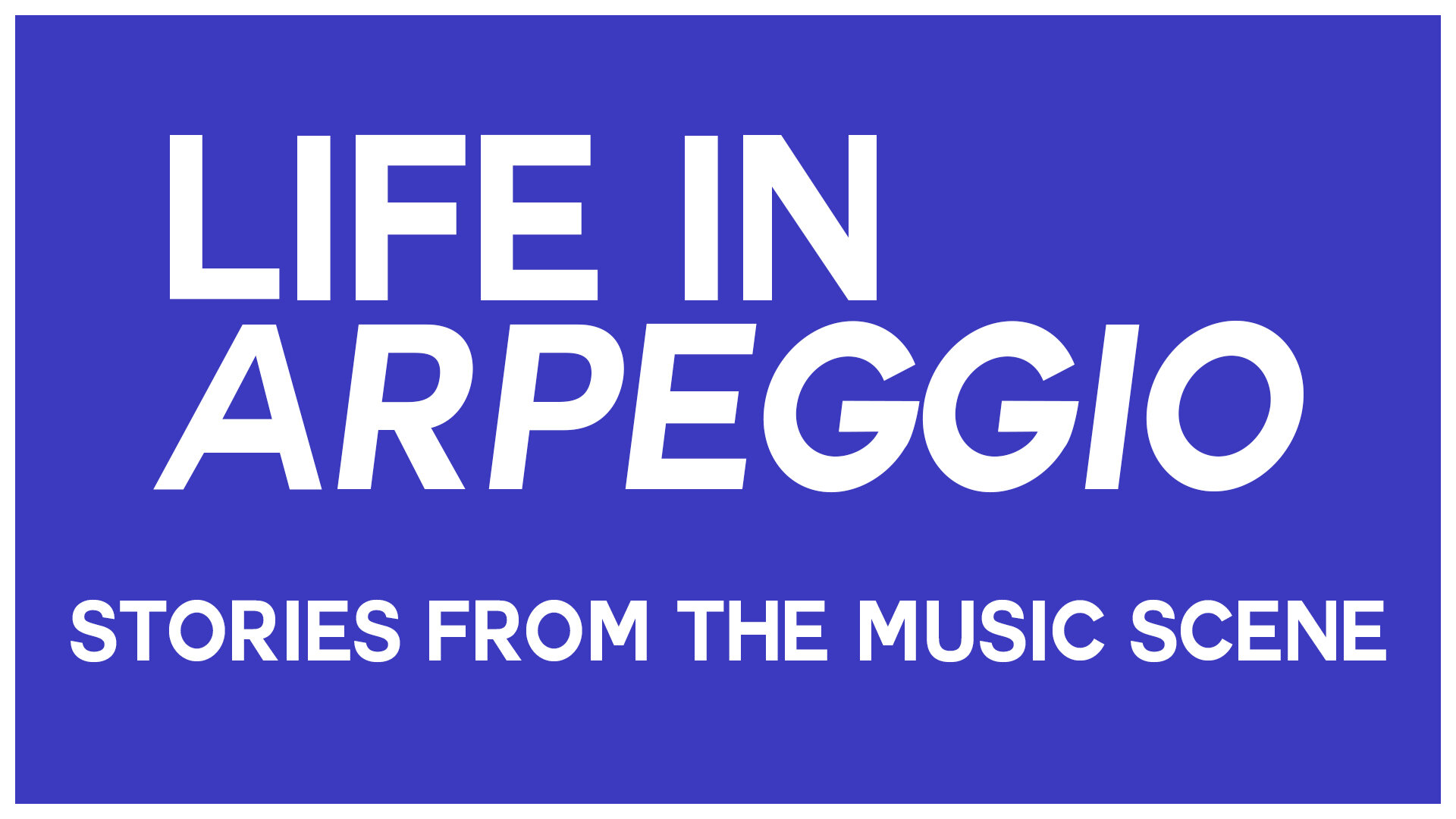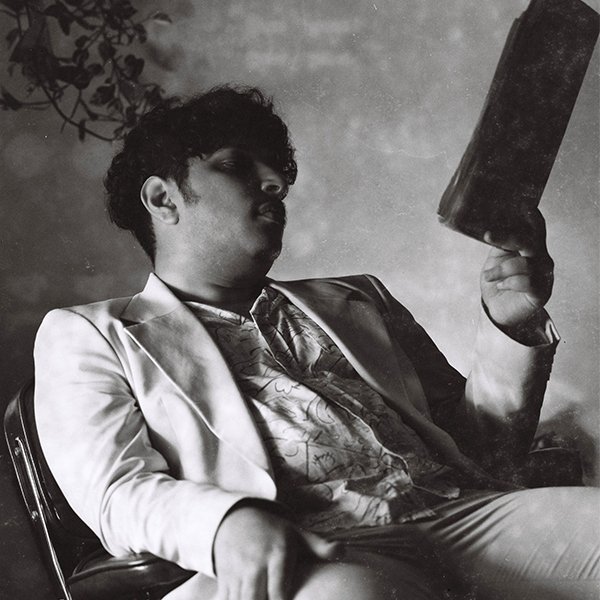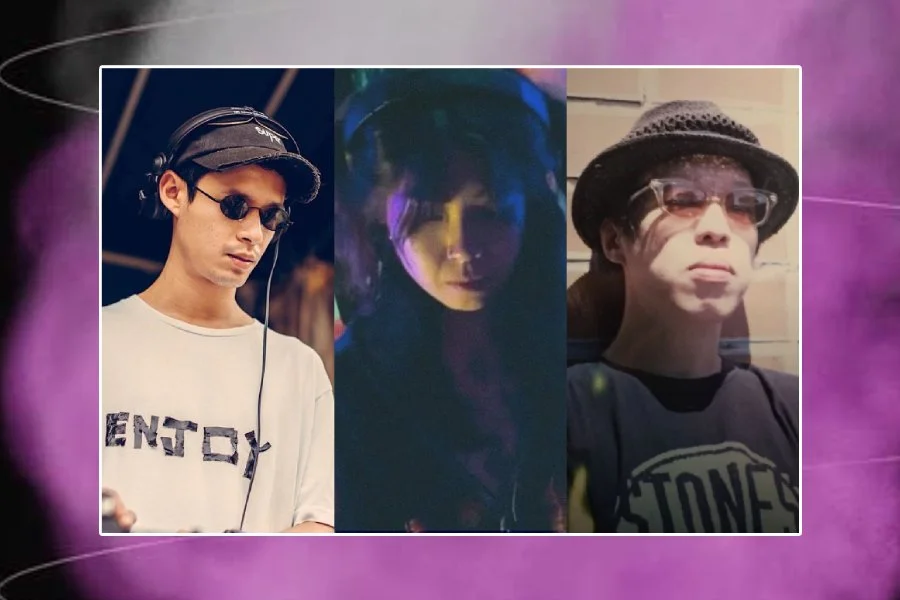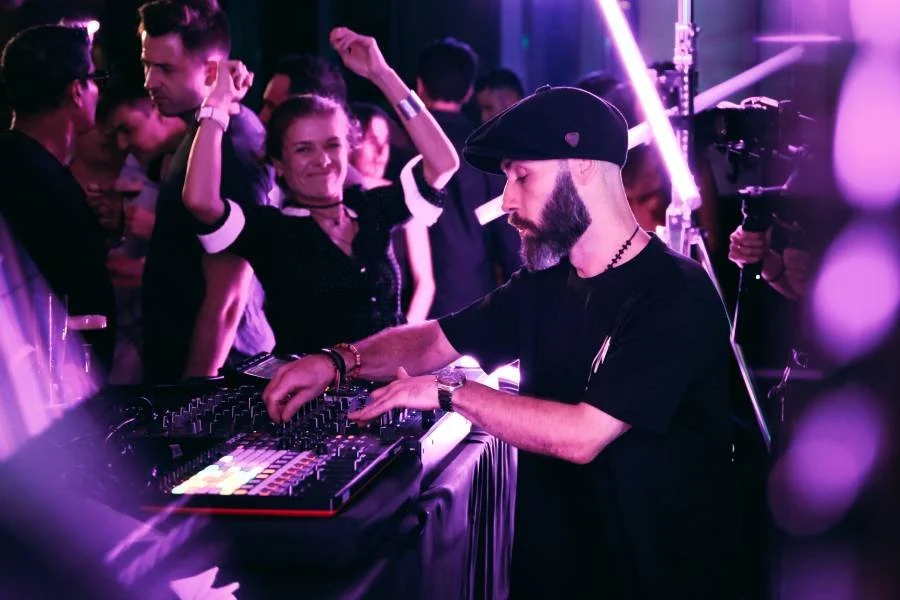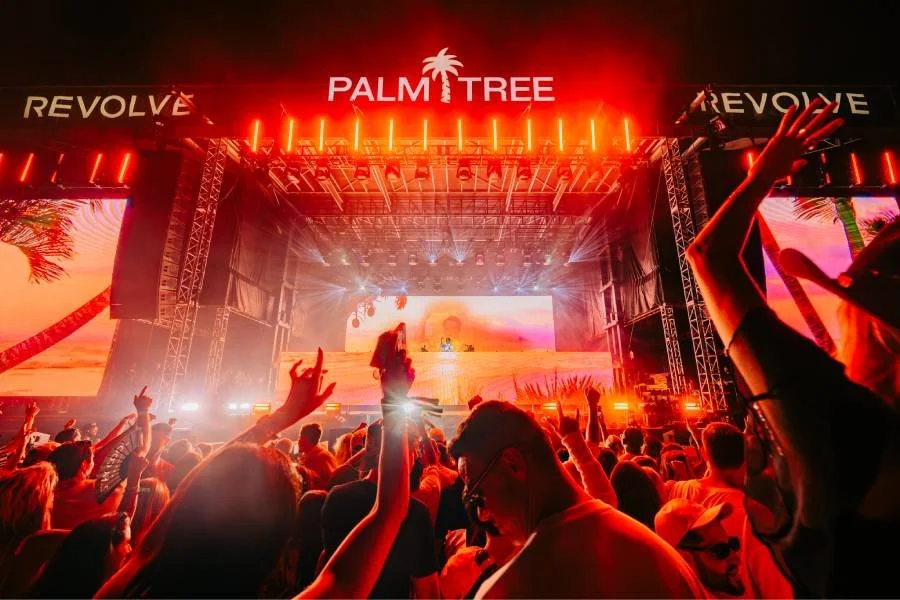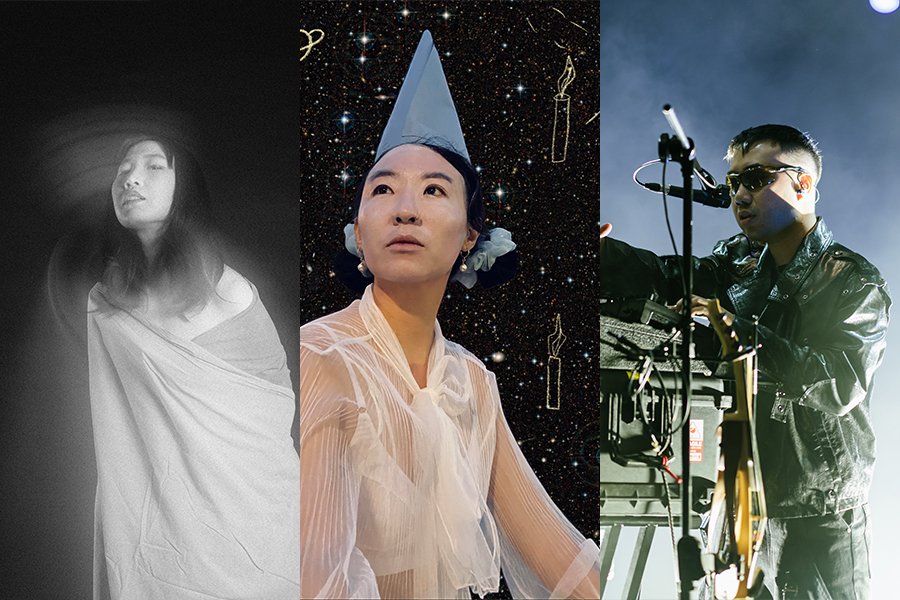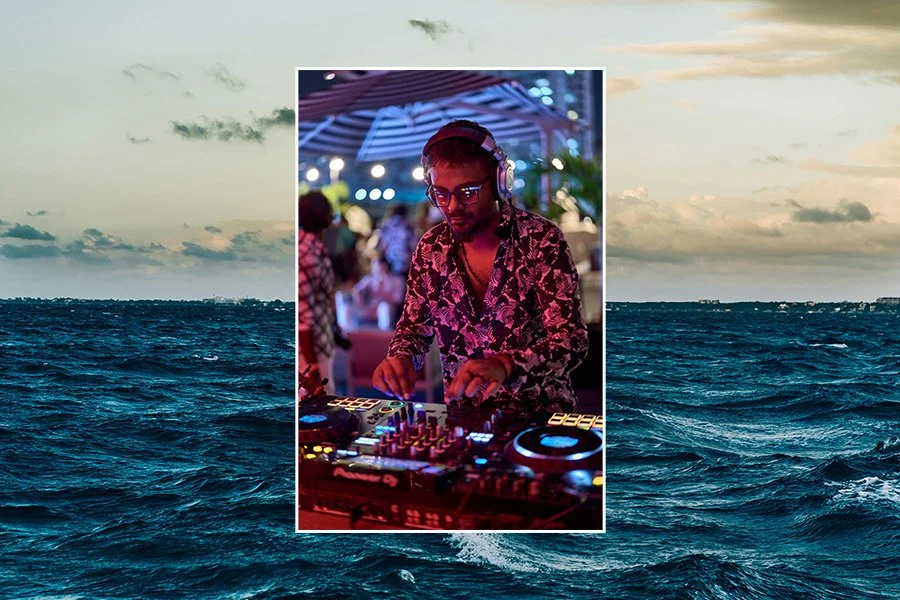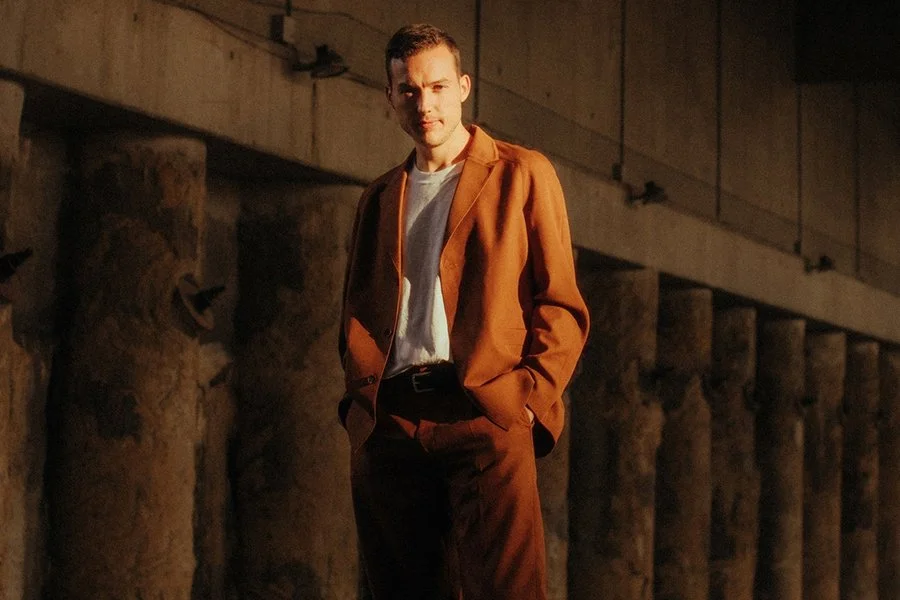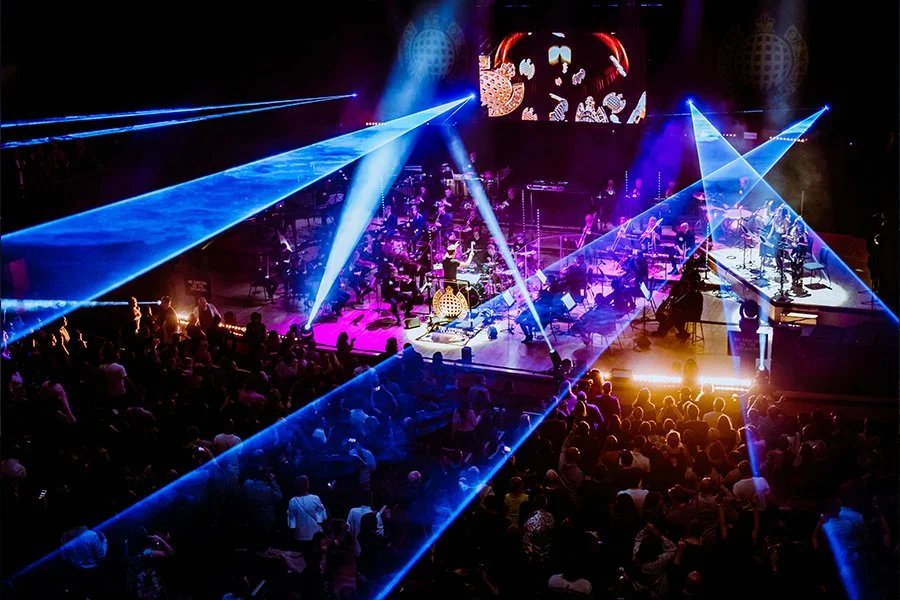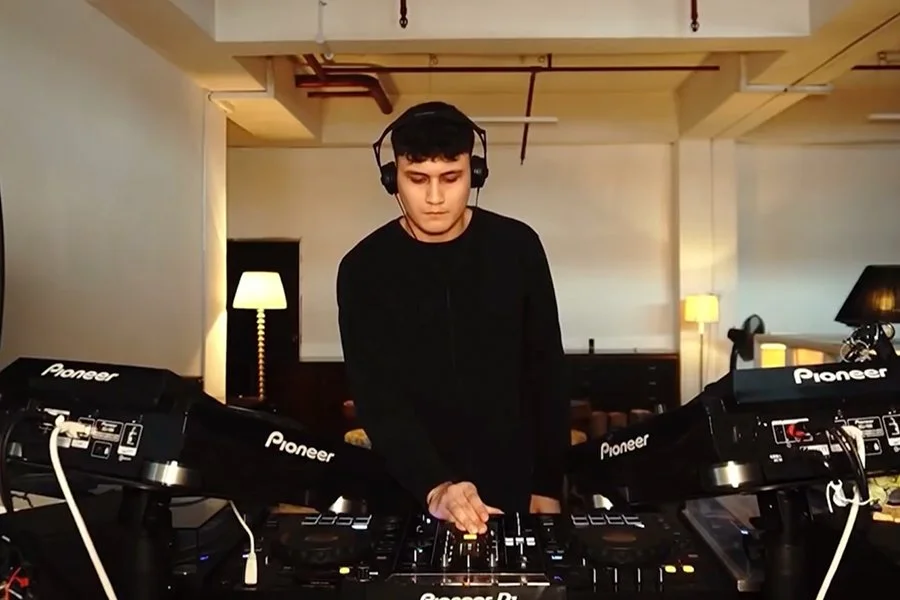Essence Of Time: Houg Opens Up About Finding His Tempo On His Chill-Centric Debut Album
Get in touch with Houg’s new tempo (Credit: Sameh Wahba)
You can’t deny the omnipresence of time. It can leave you helpless with its unstoppable eroding tides, or it can be a tough-love motivator that pushes you to get things done. Refusing to be whipped by it, Houg has taken the reins of the concept of time, turning it into his prickly yet poignant muse for his debut album, The Biting Tempo.
The 12-track full-length plucks inspiration from Houg’s real-life experiences as an artiste living abroad in Australia. Like most pivotal chapters in life, the overseas stint served as a time of reflection and growth for the solo musician and producer, with time being the crux of his reminiscences. On “Jarr”, Houg touches on how the shortage of time forces compromises into the fray. “Metro (4:35)” is a flashback to his solitary walks towards his 6am part-time job as a cook. While “Excuse Me (What’s the Time?)” considers the sacrifice of chopping time away from loved ones as he chases his music dreams. Houg has had a lot of time to think about time, and it shows in these vivid, assembled recollections.
The Biting Tempo sheds Houg’s prior trip-hop predilections and covers a sweeping spectrum, slipping through a tunnel of funk, chillwave and psychedelia. The tracks within are characterised by their floaty, past-planted soundscapes, palpably enclosed by an evocative vignette that adds a nostalgic tint. Houg builds this metaphorical wormhole with vaporous vocals, effervescent basslines, twangy guitars, filtered pads and vintage synths; weaving within one another to forge the sound of a bygone era. Houg even does this with a little help from superfriends, roping in an abundance of regional collaborators including Supergoods from Thailand, Fontana Follie from Japan, and Singapore’s own Don Aaron. There is cohesion in this camaraderie, producing a fluid journey that sounds neither fragmented nor pretentious. Perhaps, it is this double-edged sword of time that his peers can relate to, drawing their talents to forge solidarity in this conceptual record.
So has Houg become a master of time? Highly unlikely. But through this artistic self-study, has Houg evolved into a musician who’s become content with his work? In this interview, he takes the time to explain himself.
Houg’s debut album is a journey of reflection and growth (Credit: Sameh Wahba)
Thank you for taking the time to do this interview; I know how much time means to you. As a creative, do you always feel the pinch of not having enough time and the pressure of productivity?
Oh 100%. I’ve come to realise that whenever I try to bring out the concepts in my music, I inadvertently force myself into a corner. This whole DIY thing with my storytelling (the music, the visuals and other peripheral mediums for further contextualisation) can be really daunting to execute on my own, and I don’t have the luxury of time to make it all happen.
I’ve listened to all kinds of opinions about my music in the past, and the one that I really found intriguing was that the visuals tend to help paint a more vivid picture of my music through the eyes of some. I always found that really cool, mostly because I like keeping the themes of my music subtle enough to encourage the listener to have a go at what it means to them. But some of them might find the content in the music too abstract for them, so the music videos seem to have always been a good way for them to satiate whatever urges they have in figuring out the meaning in said songs. As much as I would love to express all my songs through more than one medium, it’s just too hard because I don’t really have the time for that. With this new album, I’ve chosen a really complicated way to go about its production, using reel tapes and such. Talk about shooting myself in the foot, heh.
But yeah the pinch is reallllll. I’d say I’ve found a good compromise where I’ve used the time I do have to put a bit more focus in the writing and production of these songs; to not really need some form of peripheral medium to express its meaning.
It seems like you’ve poured your perspectives on time into your debut album, The Biting Tempo. Was this message long overdue? Something you wished to get off your chest?
Initially, not so much. But eventually, perhaps? When I started writing this chapter in the story of Houg, I wrote what I subconsciously thought about. It wasn’t some Pink Floyd fanboy epiphany where I went, “Oh I’d like to do ‘Dark Side 2’ and continue the narrative on the subject on time”.
Instead, I wrote three songs in isolation since my return from Australia, and when I reviewed what I had written, the three songs all explored different aspects of the same subject matter – that being time. It was only then that I realised, “Oh maybe this could be actually something I do indeed want to get off my chest”.
I wasn’t surprised either because my time there was turbulent, and I hadn’t really found an output for my emotions at that point, but writing those songs felt seamless and almost like an emotional release. It’s only from there did I consciously write the rest of the album with that thought in mind. And from that point, I would’ve probably felt like, “Yeah, I definitely need to get this off my chest”.
Unlike your prior trip-hop excursions, the singles from this new album fully embrace their funk temperaments. Was it a conscious desire to ‘outfunk’ yourself with this record?
That’s also a funny one! I think, similar to the question earlier, it was only when I came back from Australia did I realise that it had a subconscious effect on me musically as well. During my time in Melbourne, I spent so much time mingling with the jazz/soul community, so much so that we embraced each other as family. I mean, they literally took me under their roof when I lost mine. So naturally, what they also offered as musicians became something I fell in love with as well.
Hence, I suppose they became unexpected influences on my music taste at the time. It’s funny because I’m not a jazz cat per se, let alone a musician with formal training, so it wasn’t as though I went, “Oh yeah, these funky/jazzy tropes are definitely going onto my songs”. I made vapor-tinged trip-hop at the time, so the thought of adopting those tropes definitely didn’t even cross my mind. (Portishead is an exception that does indeed embrace these tropes, but I can only dream of producing like Geoff Barrow.)
When I started unintentionally writing about the theme of time, I also started unintentionally writing groovy synth bass lines underneath those words and after a couple of tracks, I just went, “Ahh, I guess this is a thing now”. Call it the Melbourne poison, I suppose.
Houg is driven by the DIY spirit, and it shows in his usage of analogue equipment (Credit: Courtesy of Houg)
In previous interviews, you revealed that you utilise analogue methods like tape machines to create that warm sound in your songs. Was it a case of trial and error when figuring out these techniques, or are you a bona fide genius who knew exactly what you were doing?
Definitely the former. Growing up, me and a good friend of mine, Nikkie, always took on things the only way we knew how – by giving it a shot ourselves. Money was hard to come by, so that instilled some sort of DIY spirit between the both of us. Couldn’t afford a guitar amp? No problem, just plug it into a dodgy karaoke machine and deal with the neighbours later. No pedalboard? Let’s get some wood at the back of a coffeeshop or Defu Lane and make one. That attitude existed outside of music as well. And that’s how we both took on adulthood, really. I took on music with the attitude that I’ll figure it out as I go along while he took on multiple disciplines of art (tattoo, graphic design, carpentry and leather work amongst the many other things I can’t recall right now).
I’m not going to lie; initially, it was hard. The imposter syndrome of existing amongst my musical peers who possess the most formal of musical education did get to me. And I wrote about that in my previous chapter, The Oscillation Scene.
But I’ve dealt with those demons (for now) and wanted to be unapologetic on this record. I love the sound of tape (shoutout to UMO), so I figured, “why not?”. It wasn’t easy. The machine(s) were temperamental and hard to work with when I needed it to, but trial and error I suppose. And funnily enough, the spark of giving tape a chance was a thought that Nikkie initially suggested while I was still writing the album in its early stage. In fact, the album’s cover art is a painting that Nikkie did up. So, I’d like to think that with this album, we’ve both gone full circle with our mutual philosophy of DIY trial and error.
With your vintage obsession, do you sometimes feel like you grew up in the wrong decade? Or are you happy to be where you’re at in 2022?
Wow… I don’t know... The way I see it, we have conveniences now. Let’s use photographic film as an example here. Can’t find the right kind of film to shoot or maybe Kodak keeps raising the prices? No problem. Get a digital and emulate the vibe if you know the quirks well enough (still doesn’t do it for me though).
But conversely, I would love to have lived in a time where film was abundant. The variety then would’ve been so much more fun to play with, and everywhere basically developed film. So, in an isolated example such as this, I would’ve preferred that for sure, but then again, I would’ve loved to also go back home and access all kinds of information the modern Internet has to offer.
It is confusing because my tape machine died on me a couple of times when I had to mix and master the album. Throughout the whole ordeal, there was this whisper in my ear constantly telling me to use a virtual tape plug-in on my production suite instead, but I just couldn’t. Here I was, pulling my hair out, shouting at a 45-year-old machine when I literally had a contingency in the form of an emulation on my computer. So what does that mean then? I’m really not sure. Maybe I’m just confused.
The album features plenty of regional collaborations. How did you go about finding these musical partners? Were they pre-existing connections?
I think the background behind the collabs are quite varied. For example, on “7 Ain’t Home”, I actually reached out to VIDEOTAPEMUSIC on Instagram. We didn’t know each other prior, but I already loved his music. I just figured why not? I sent him one of my demos that I thought was up his alley and hoped for the best. Fortunately for myself, he vibed with it and was keen enough to help out on the track.
And with Supergoods, I already loved their music prior but I didn’t know how to reach out. Fortunately, my manager knew some people they were affiliated with and that’s how we got in touch. I was quite thankful for that because I didn’t imagine I’d actually have them on a track of mine. I still can’t.
With the other collaborations, like Fontana Folle, my manager and their reps already knew each other and they thought it could be fun if we wrote a song together, and I thought so too. That was quite intimidating because I hadn’t really done collaborations up until that point. I was also quite worried that their vision wouldn’t be aligned with what I wanted on this album, especially since these stories are quite personal to me. So unlike the other collabs, I didn’t know if we’d be able to work on the same wavelength. But thankfully we did and an amazing song came out from that experience.
There is always a vintage quality that runs through the veins of Houg’s tracks (Credit: Courtesy of Houg)
With all this talk on time, we have to backtrack quite a bit for our readers to have deeper context. How and when did you dawn upon the epiphany whereby you went, “Yeah, I think I could try out this music thing.”?
I bought Guitar Hero when I was in secondary school and I mostly played it on the PlayStation controller. I didn’t even have the money to get the actual peripheral controller thing. And I got really good at just playing on the controller so naturally, that came next (once I could afford it).
No surprise, I got good on the pseudo guitar thingy as well, so I thought the real thing couldn’t be that hard could it? – I was wrong. It was completely different. The only thing that carried over probably was my sense of rhythm, nothing more.This definitely inspired me to find my footing and write some music and it all went downhill from there.
Do you think you wouldn’t be the musician you are today if not for your Australia escapades?
100%. It’s like what I alluded to earlier, it seems almost as though my time in Australia had inspired my writing and musical sensibilities, way more than I give it credit for. It’s all perspective, isn’t it? I would’ve probably continued writing music and probably sounded pretty different, but would it be better or worse than what I’ve actually evolved into? That’s remains to be seen. In fact, it’ll only be subjective, as best. However, the experiences from my time there and how it has helped me grow, that is one thing that has definitely impacted me as a person that I can’t imagine myself without going through what I did.
“I don’t wake up and tell myself, ‘Okay, today I want to sound like Toro y Moi or George Clanton’.” (Credit: Courtesy of Houg)
How do you feel you’ve improved as a producer and songwriter these last few years?
I think it goes back to what I spoke about earlier regarding perspective. When I started out in music, I fronted a band that did post-punk and all I wanted to do was embody what Robert Smith or Ian Curtis represented without thinking too much about anything else, even if that meant I couldn’t write a song for the life of me. It was only after writing and producing on my own where I was forced to see things for what they actually are. I became a lot less focused on the image of my heroes and in exchange, started recognising what they actually contributed as artists. And only then was I able to take myself and by extension, my work, more seriously.
But it wasn’t just that. Handing all the writing, producing, mixing and basically everything in between for Houg is the perfect catalyst for a pride-filled echo chamber, especially if I were to fall short on my writing or production. I could just write it off as, “That’s just me and what I am. Deal with it. What do you know anyways?”.
But I’m glad I know better. So despite Houg being the platform for my most intimate introspection, I’ve always been keen on hearing what people felt. 90% of the time, they’ll say that they don’t get it, and that’s fine. For the 10% that suggests doing more vocal harmonies or for once, not making an anti-chorus, then sure, I’ll definitely give that a shot but no promises if it’ll stick. Most of the time, I’m just so pleasantly surprised by how much these suggestions do improve my songs. With the collaborations on this album, it’s been enlightening because I’ve gained so much perspective that I hope, in turn, has improved my songwriting and production prowess.
Your songs obviously have this chilled-out aura around them. Does the process of constructing these songs chill you out as well, or do they, conversely, stress you out?
The latter. I think there’s always been this unintended juxtaposition in my music. I write almost exclusively about the struggles in my life, but I contrast it with what one might consider “chill”. And I could lie to you and say it’s all me just being smart and all that, but that really isn’t the case. I don’t wake up and tell myself, “Okay, today I want to sound like Toro y Moi or George Clanton”. These comparisons typically only happen after the fact when a close friend hears my demo and says something to the effect of, “Oh nice one ripping off Neon Indian here, you ‘original’ f*ck”.
So that just leaves me with the words I write for these songs. Since my songs almost exclusively centre around my life’s struggles, I’d say that expressing these thoughts would only require myself channelling the emotions that I’ve felt in those moments of struggle. As an effect, that moment too, becomes a tense one as well. Also, working with 40-year-old keyboards and tape machines can be quite a stressor when I write so it’s definitely not a chilled-out session.
Will Houg stay in Singapore, or head off on another adventure elsewhere? (Credit: Sameh Wahba)
And to end off, do you see yourself staying in Singapore as a musician? Is it sustainable for someone with big ambitions like you?
Honestly, I don’t know. I don’t think that existing in an environment where 90% of the people can’t make sense of what I do is sustainable or healthy for my emotional well-being. And sustainability is what I’m after so I need to look at options.
That being said, I think it’s definitely worth the effort for me to seek out communities that would reciprocate my music better, like what I’ve done in the past with Australia. Then again, the Internet is a lot more immersive than ever and I think that’s worth taking advantage of. Online communities are really lively and that’s something I’ve been immersing myself in as well.
So I don’t know. Maybe, maybe not. Ideally, I’d like to stay home, but even with my experience immersing myself in Melbourne’s music community before, I get antsy every time I remind myself that I’m not there.
Listen to The Biting Tempo by Houg on Spotify. Follow his Instagram and Facebook pages to stay updated with his activities.
